#MondayMaterials Episode 34 – Dr Chamil Abeykoon
Meet the Department 29 January 2018
This week, we’re talking with Dr Chamil Abeykoon, lecturer and eLearning Lead for the School of Materials. Here he gives us an insight into his research, and tells us about his love of nature and the great outdoors.
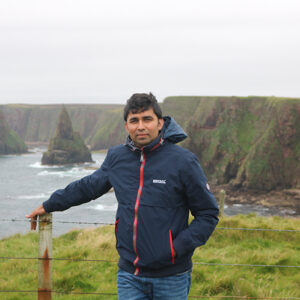 Please can you describe your research, for the layman, in 10 sentences or less?
Please can you describe your research, for the layman, in 10 sentences or less?
My research spectrum is quite broad as my educational background is based in mechanical engineering, although I am now in the School of Materials. Currently, I am working on materials processing; process monitoring; modelling and control; soft sensors and soft sensing; heat transfer; and energy technologies.
In all of these areas, I am researching the possible ways and means of improving the efficiency of the components/systems by improving their working conditions. For example, improvements to process monitoring in an industrial process allow us to better understand that process (i.e., functionality, mechanisms, and limitations) so we can improve its controllability to enhance its efficiency. Here, the main purpose is to optimize the use of production resources (energy, time, labour, raw materials) to have a good quality product with a low unit cost.
I am also working with colleagues in the School of Mechanical, Aerospace and Civil Engineering (MACE) to solve problems with wind/hydro power generation (noise control), photovoltaic-fuel cell systems and heat transfer aspects in gas turbines.
How can your research benefit the public?
Well, the public can benefit in a number of ways. One of the main benefits is the improved energy efficiency in applications that I am working with. Improved energy efficiency of the processes can provide lower product prices and also, more importantly, a reduced impact on the environment with reduced energy usage, hence lowering CO2 emissions. The main purpose of the research is to improve quality of life with a minimum impact on the environment.
How did you first become interested in your research area?
Here, I should mention that my third-year undergraduate project helped boost my interest in academia/research. My supervisor was a well-known professor and he gave me a challenging topic in the area of heat transfer and gradually led me to work independently and innovatively. At the end, my project was the best project within the mechanical engineering group.
At the end of my first degree, I was the recipient of the award for best performance in mechanical engineering that year.
All these achievements contributed to me moving to academia – and choosing to work in the area of heat transfer specifically.
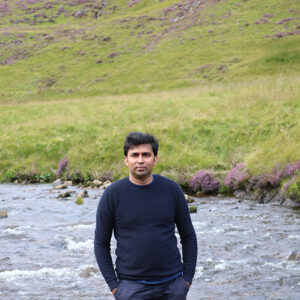 Who or what first inspired your interest in science and engineering?
Who or what first inspired your interest in science and engineering?
It is quite difficult to mention just one thing. In fact, I was interested in mathematics and science while at primary school, where mathematics was my favourite subject.
From early childhood, my intention was to follow maths subjects and then enter an engineering faculty if possible – and there was no second option in my mind. Eventually, I ended up following the maths stream in my A levels and was awarded a place as an engineering undergraduate. However, I had no plan or idea to be a scientist until I met my third-year undergraduate project supervisor, who helped me to discover my research potential.
Can you tell us a little about your other interests?
I like traveling, particularly to see the beauty of nature and also to discover places with historic backgrounds. Before moving to Manchester, I lived in Wales and was able to travel to Snowdonia quite frequently, which is one of my favourite places to travel in the UK.
I received my first degree from the University of Peradeniya, Sri Lanka, which is one of the most naturally beautiful universities in South East Asia. This place also inspired my interest in nature.
I also love playing and exercising, and I was quite a good sportsman in my school days and at university in both individual and team events.
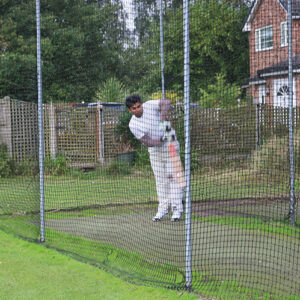 What do you get up to in your spare time?
What do you get up to in your spare time?
In my spare time, I go to the gym and also play a few games of badminton. I love to go to the Peak District for short walks when I get a chance. When I get the chance, I find some time to play a couple of cricket matches during the summer.
How does being based here in Manchester help your work and research?
Well, as we all know, Manchester is one of the best places in the world for materials and engineering research and its reputation in these areas has grown over the decades. I have access to all sorts of facilities to carry out my research here.
Right now, I am working with the North West Composites Centre and the Aerospace Research Institute. Also, we have a wide range of opportunities to conduct cross-disciplinary research and I am now working with colleagues in MACE while based in Materials.
Manchester is a multi-cultural and vibrant city with all sorts of facilities to live a good life.
Thanks for chatting to us Chamil. Check back soon for another #MondayMaterials.
energyhydro powermaterials processingmonday materialswind power

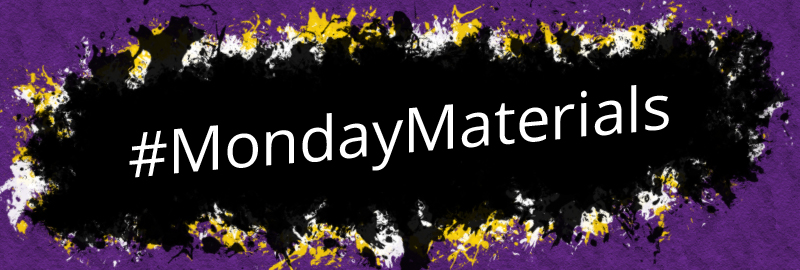
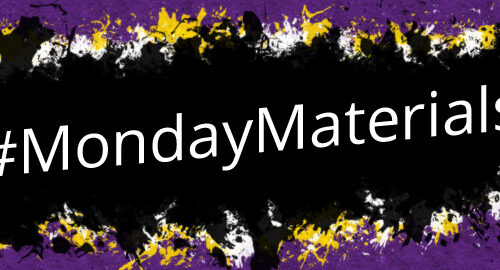
Leave a Reply